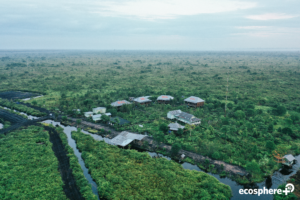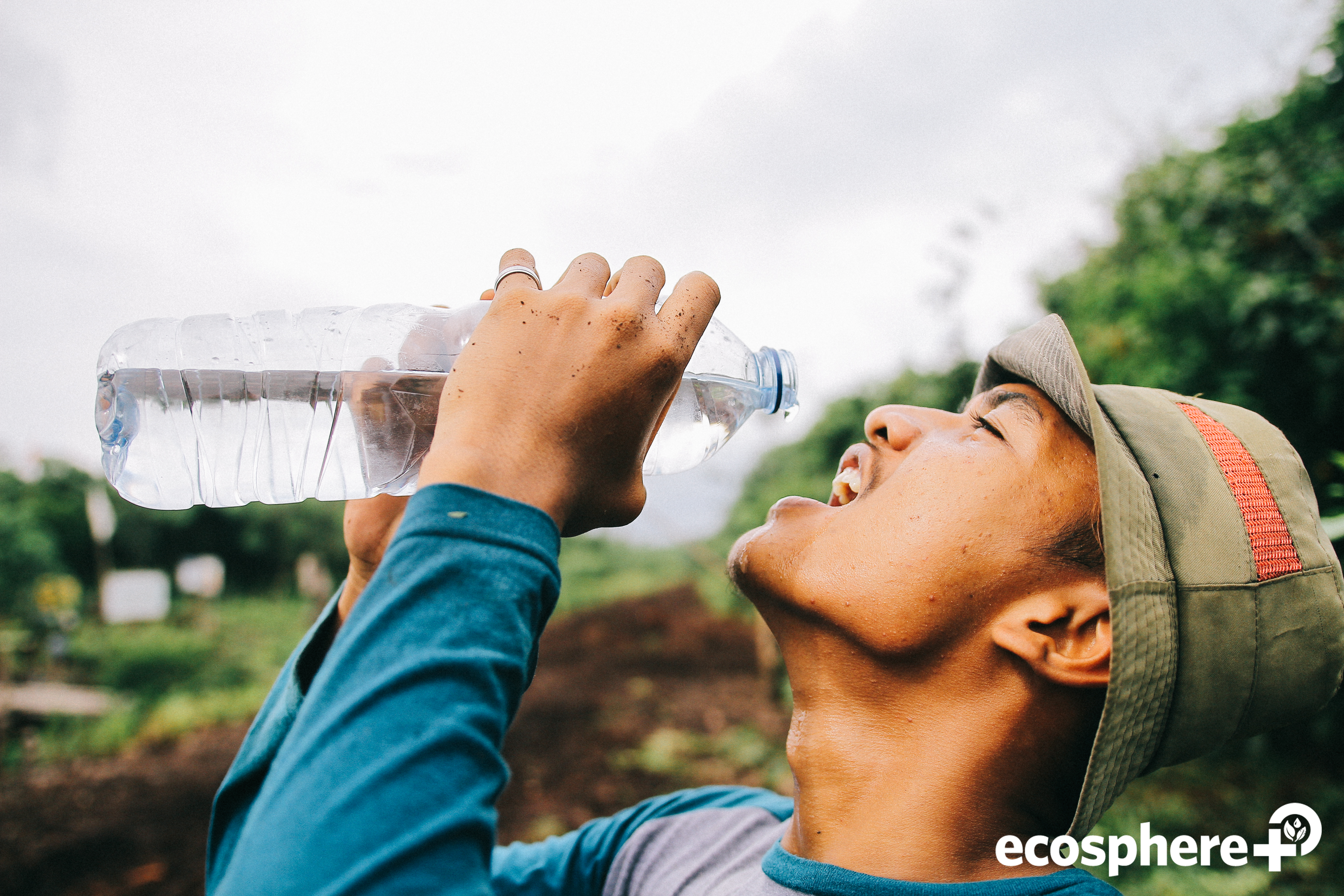The United Nations says, “water is the primary medium through which we will feel the effects of climate change”. It is for this reason that the Sumatra Merang Peatland Project (SMPP) in Indonesia aims to empower local people and build resilience through safeguarding community access to clean water.
One in three people globally do not have access to safe drinking water. Many of those most affected are also more vulnerable to climate change, where unpredictable weather patterns like floods, droughts and storms are disrupting the reliability of water access and the livelihoods of many. As temperatures rise globally, safe drinking sources are also increasingly under threat, with waterborne diseases such as typhoid and cholera more able to easily spread.
A holistic approach to building community resilience to climate change is therefore one that address a variety of distinct challenges. That’s why at the Sumatra Merang Peatland Project, a community development fund is used to target programmes across all spheres of life, from children’s health and education to clean energy and water access. The project, implemented by Forest Carbon and Global Alam Lestari and represented by Ecosphere+, works collaboratively with two local communities – the Merang and Kepayang villages – to determine allocation of funds based on community-identified needs.
 One of the main concerns for both villages is a lack of access to clean water. Most communities still source water from the Lalan River for their daily needs such as for washing, cooking and drinking. To address this challenge, the development team consulted with local leaders and community members to establish a long-term plan involving the construction and deployment of rainwater catchment systems for households and public locations across each village. This collaboration between project staff, community members and local leaders is typical of projects like SMPP, which work to enable local stakeholders to build their own systems of change.
One of the main concerns for both villages is a lack of access to clean water. Most communities still source water from the Lalan River for their daily needs such as for washing, cooking and drinking. To address this challenge, the development team consulted with local leaders and community members to establish a long-term plan involving the construction and deployment of rainwater catchment systems for households and public locations across each village. This collaboration between project staff, community members and local leaders is typical of projects like SMPP, which work to enable local stakeholders to build their own systems of change.
To implement the rainwater catchment plan, the development team worked closely with local carpenters and engineers, training them to build and operate the catchment systems, with the intention of upskilling these staff members to generate further income across the wider region from similar installations. As a result of this program, Merang and Kepayang are now home to 51 water catchment systems, which are already providing clean and reliable access to water.
Climate finance generated by the sale of carbon credits to Ecosphere+ clients is enabling an important array of activities and programmes across the project area, water catchment systems being just one of the vital pieces of an integrated, community-focused strategy of conservation and restoration here on the island of Sumatra.
Get in touch with us to find out more about Ecosphere+, and how to incorporate this project into your climate strategy.
